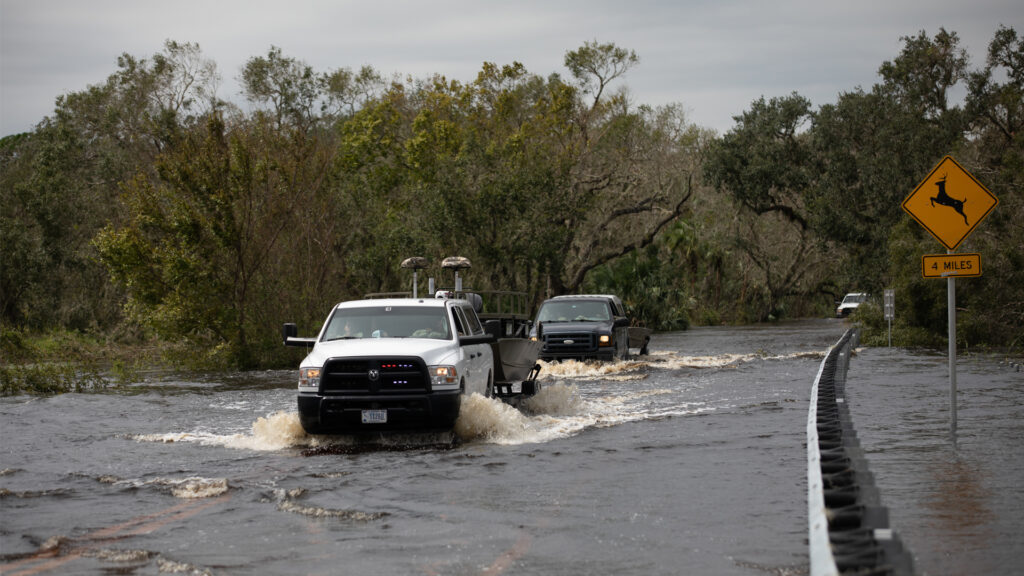By John Burr
Florida has long been considered one of the U.S. states most threatened by a warming climate. Two recent climate studies raise that threat level further.

A quickly warming Gulf of Mexico is driving a faster-than-expected rise in sea levels along the Gulf and across the east coast of Florida and the southeastern U.S., according to two recently published studies by climate scientists.
The studies, reported on by the Washington Post, conclude that since approximately 2010, sea level rise has accelerated along the Southeast and Gulf coasts, in some cases twice as fast as the ocean has risen as measured by a global average.
“The entire Southeast coast and Gulf Coast is feeling the impact of sea level rise acceleration,” climate scientist Jianjun Yin of the University of Arizona told the Post.
Time is slipping away
These studies are dire news for Florida. Why? Because faster sea level rise shaves away years of time that the state needs to respond to rising waters and flooding. The studies suggest that the level of flooding that we may have expected in 40 years may occur in 20 years, with faster disruptions along the way.
Consider just one climate change issue that the state is wrestling with right now: how to provide affordable home insurance across the state in the wake of hugely destructive hurricanes and an increase of high-tide flooding along the coast.
If these higher rates of sea level rise continue, or even accelerate further, property insurance will be disrupted faster and more deeply, with bad consequences for Florida’s real estate market and mortgage lending.
Or consider Florida’s initial efforts at climate resilience, the funding of expensive projects to protect homes, businesses road and other infrastructure from flooding and storm surge. Again, a faster timetable for sea level rise cuts the response time, necessitating faster and more expensive public investments of billions of dollars.
And of course, all these threats are growing at a time when people are moving here from other parts of the country in droves.
A warmer Gulf of Mexico
Some more details from the two studies, as reported by the Post. From 2010 to 2022 sea levels rose nearly 5 inches, according to Lin’s study published in the Journal of Climate. A second study, led by Sonke Dangendorf of Tulane University, agreed with the first study on the accelerating rate of sea level rise.
Dangendorf told the Post that the rate of sea level rise observed in the Southeast and Gulf are similar to what scientists forecast for the end of this century under a high greenhouse gas emission scenario.
Yin’s study concluded that the damages from recent hurricanes Ian and Michael were made worse by the higher sea levels, leading to higher storm surge and worse flooding.
No one can say if the sea will continue to rise at the recent rapid clip, but the acceleration appears closely related to the warming of the Gulf of Mexico, which the Post reported is warming much faster than the global ocean.

Warm water expands in volume, and the warmer than expected Gulf Stream is a major ocean current that flows out of the Gulf and north up the east coast of Florida and beyond. Warmer water in the ocean also breeds larger and more destructive hurricanes, such as Ian, which barreled into Southwest Florida last year, killing 152 people and causing $113 billion in damages.
These new studies underline the overriding message from last month’s Intergovernmental Panel on Climate Change summary report: The world needs to get very busy on all fronts to limit climate change. People in Florida need to demand action now – our world is deteriorating faster than we realize.
John Burr served on the Jacksonville Special Resiliency Committee and is a steering committee member of Resilient Jax.
If you are interested in submitting an opinion piece to The Invading Sea, email Editor Nathan Crabbe at nc*****@*au.edu.



